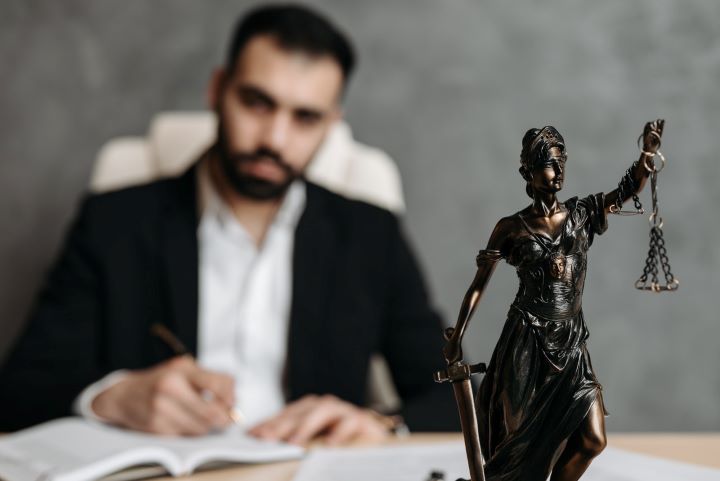When facing criminal charges, understanding your rights and options is crucial. This article explores key strategies to help you navigate the complex legal system and mount an effective defense. From knowing your rights to working with legal professionals, we’ll cover essential steps to protect your interests and achieve the best possible outcome.
Understanding Your Rights
The foundation of any strong defense starts with a thorough understanding of your legal rights. Here are some key points to remember:
The Right to Remain Silent
One of the most critical rights is the right to remain silent. This means:
- You are not required to answer questions from law enforcement
- Anything you say can be used against you in court
- You can politely decline to speak without an attorney present
The Right to Legal Representation
Everyone has the right to an attorney, even if they cannot afford one. This ensures that:
- You have access to legal advice throughout the process
- A public defender will be appointed if you cannot afford private counsel
- You can consult with your attorney before speaking to law enforcement
Gathering and Preserving Evidence
Collecting and maintaining evidence is crucial for building a strong defense. Consider these steps:
- Document everything related to your case
- Gather witness statements and contact information
- Preserve any physical evidence that may be relevant
- Collect surveillance footage if available
- Keep a detailed timeline of events
Selecting the Right Legal Representation
Choosing the right attorney can make a significant difference in your case outcome. When selecting legal representation, consider:
- Experience in handling similar cases
- Track record of success
- Communication style and availability
- Fee structure and payment options
Finding a criminal defense attorney Las Vegas residents trust if you’re facing charges in that area is essential, as local knowledge can be invaluable.

Understanding the Charges
Understanding the charges against you is crucial for developing an effective defense strategy. This involves:
- Reviewing the specific laws you’re accused of violating
- Understanding the elements of the crime that must be proven
- Identifying potential defenses based on the nature of the charges
Exploring Plea Bargains and Negotiations
In many cases, plea bargains can be an effective way to resolve charges. Consider these factors:
- Potential sentence reduction
- Possibility of lesser charges
- Impact on your criminal record
- Pros and cons of going to trial vs. accepting a plea
Preparing for Court Appearances
Being well-prepared for court appearances can significantly impact your case. Key steps include:
- Dressing appropriately for court
- Arriving early to meet with your attorney
- Reviewing your testimony if you plan to take the stand
- Understanding courtroom etiquette and procedures
Building a Strong Defense Strategy
Developing a robust defense strategy is critical. This may involve:
Challenging Evidence
- Questioning the legality of searches and seizures
- Examining the reliability of witness testimonies
- Challenging the admissibility of certain evidence
Establishing Alibis
If applicable, providing a solid alibi can be a powerful defense. This might include:
- Gathering witness statements confirming your whereabouts
- Collecting electronic records (e.g., GPS data, phone records)
- Presenting video evidence of your location at the time of the alleged crime
Examining Police Procedures
Scrutinizing law enforcement’s actions can reveal potential violations of your rights:
- Reviewing arrest procedures
- Examining Miranda rights compliance
- Investigating potential misconduct or rights violations

The Importance of Mental Health Support
Facing criminal charges can be incredibly stressful. Consider these steps to maintain your mental well-being:
- Seek counseling or therapy if needed
- Join support groups for individuals facing similar situations
- Practice stress-reduction techniques like meditation or exercise
- Maintain a strong support network of friends and family
Understanding Potential Consequences
Being aware of potential outcomes can help you make informed decisions:
| Outcome | Potential Consequences |
| Conviction | Jail time, fines, probation |
| Plea Bargain | Reduced charges or sentencing |
| Acquittal | No legal penalties, record cleared |
| Dismissal | Charges dropped, case closed |
Protecting Your Future
Even after your case is resolved, there may be long-term implications to consider:
- Exploring record sealing or expungement options
- Understanding how a conviction may affect employment or housing
- Considering the impact on professional licenses or certifications
- Planning for potential immigration consequences, if applicable
Final Thoughts and Next Steps
Navigating criminal charges is a complex process that requires careful consideration and expert guidance. Understanding your rights, working closely with skilled legal representation, and being proactive in your defense can significantly improve your chances of a favorable outcome.
Remember that every case is unique, and the strategies discussed here may not apply to every situation. Always consult a qualified attorney to receive personalized advice tailored to your circumstances. With the right approach and support, you can face the challenges ahead and work towards the best possible resolution for your case.












Leave a Reply